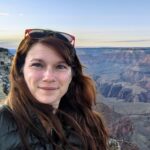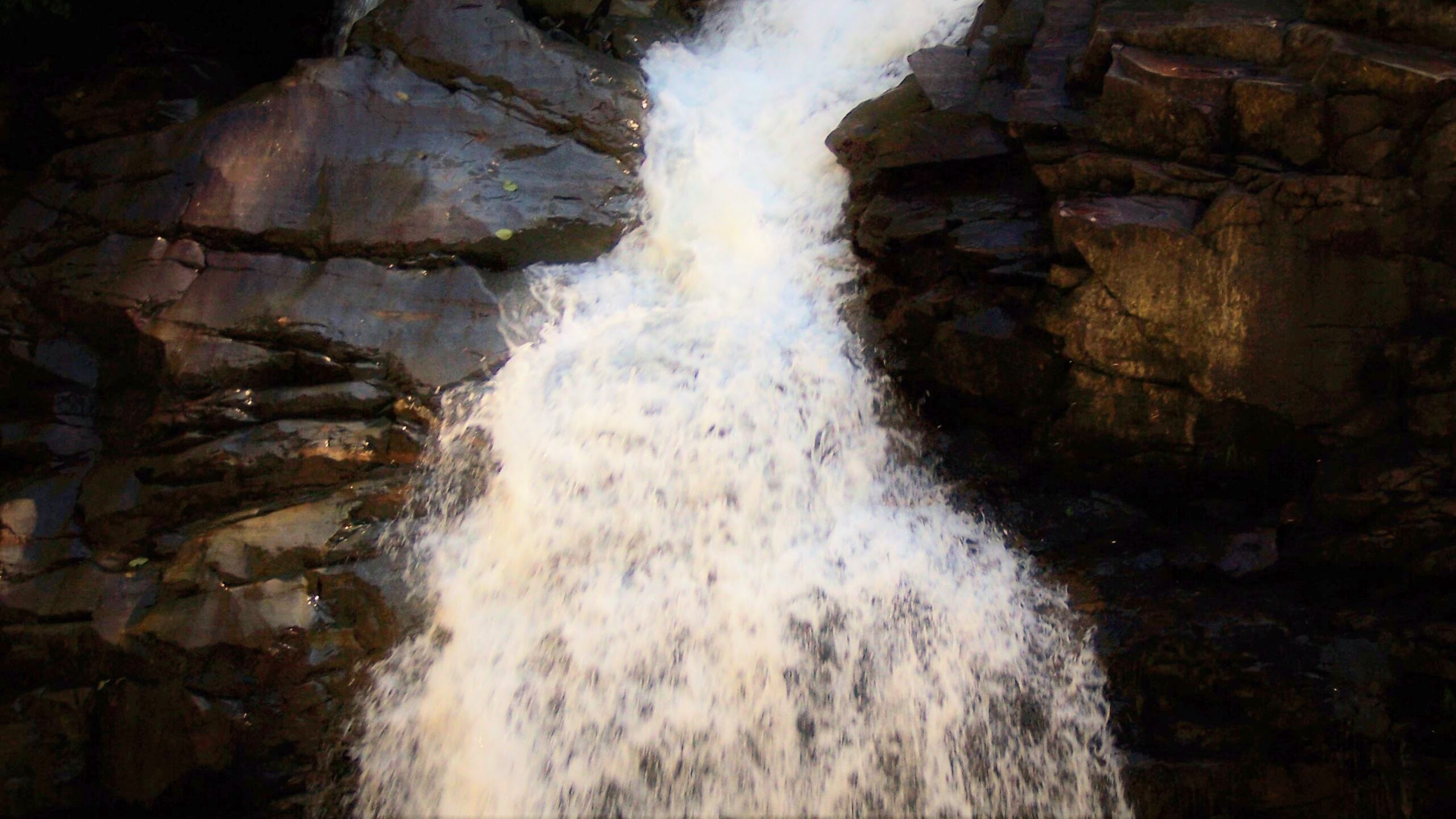Memory’s a tricky thing. You’ve plucked at yours trying to bring forth the melody of your sisters giggling in the morning light, the sound of roosters crowing, and then footsteps at your door to wake you for breakfast. But it tends to be all or nothing so most days it’s safer to ignore the sound of water that plays like static in your ears throughout the day, interrupted only by subway whirs each morning and night and the sharp scrape of your key in the door announcing the silence of home.
Home. Another tricky thing. They say home is where the heart is, in which case you’re not home. That home is gone. The parents are gone. The house is gone. Most everyone you knew is gone. The boy you used to spy on out of the side of your eyes while you popped your bicycle on and off the curb hoping he would notice. Your grandma, who told you a thousand bedtime stories but never one word about her own life, as if she knew there was no point in setting down roots in soil that was only going to blow away in the wind. Your best friend, who didn’t want to grow up so she died instead. You sometimes wonder what she’d think of your life now. It didn’t unfold quite like the two of you had imagined lying on your backs in the grass pulling your dreams from the clouds floating overhead. There, a castle. There, a couple dancing. There, a woman laughing.
You’ll never return and you know that. Why would you? You’d thought only of leaving then. By the time you finally made it out…
The alarms sound in your head. Stop the flow. Turn off the tap. You breathe in, push the horrors back into the graveyard and slam the gate, locking it with a mental snap. You look up at the faces around you on the subway and remind yourself that everyone has struggled, that they all carry with them the invisible luggage of Memory. Scanning each pair of eyes, you try to guess what sounds fill their inner thoughts this morning—the laughter of children, the soft or shouting words of a spouse, the moaning on the other end of a telephone, the silence of an empty room—and for a moment you imagine these memories flowing together like music to the rhythm of the rocking train.
But today this mind-game won’t work because she’s there, talking too loudly, drowning out your private symphony with her abrasive voice.
The Backpacker. She has a real backpack, the kind you could stuff your entire life inside. She’s young and has a nose-ring and spiky hair. Her black sweatshirt is dusty and covered in patches but she looks healthy and is nearly vibrating with the energy of youth. When a man squeezes in next to her, she apologizes for the bag taking up so much space and launches on a ramble about how far she’s carried it, naming place after place that she’s visited on her “journey to touch the world,” speaking so fast that you can’t keep up.
You’re still contemplating that she’s traveled so much at her young age when your heart skips. She just said the name of your town. You have to fight the urge to plunge through the tangled bodies and interrupt—to say that you too have been there, to ask why she would go there of all places. To say nothing at all and just stand in silence for a moment looking into the eyes of someone who knows the world in which you once lived really existed.
But the flow of words is so fast. The waterfalls, she’s saying. The waterfalls are so beautiful. She talks about hiking the steep mountain path to the tune of her own breath, of sleeping to the sound of raw nature, of having everything that she needed at that moment, of finding herself in bliss. Then the train shakes to a halt and she’s gone, bag and all, leaving a gaping hole of silence in her wake.
A heavy emotion you can’t place bubbles up inside you. Its force surprises you and you try to swallow it like a mouthful of water. Suddenly the train is too full, the music of memories too loud, the air molecules too few. You get off an exit early and walk quickly, hoping the adrenaline will push the strange feeling out of you. You think you might burst apart and shatter into tiny shards of broken reality that the street sweepers will have to collect in their rusty metal dustpans.
She’d seen your waterfall. She’d gazed up at the same stars you once slept under. She’d stood in the rushing circle and watched the water flood past, Infinity moving around her while her feet remained planted on solid rock.
Paradise, she’d called it.
Paradise. You imagine her naked body dipping into the clean water, reclining on the banks in the sunshine smoking a joint, or meditating on the rocks while the local boys watched from the tree line, snickering into their hands. But you know the proud, snub-nosed owner of the local cafe would have smiled at her, prepared her food to her liking, and taken her money in humility. The men who worked at the park would also have smiled when she asked them to take her picture and later, they would have chewed on their thoughts in silence once home with the wife and the children and the bills stacked up on the table.
The local kids would have followed her through the town, dreams of adventure filling their young heads as they peppered her with broken English. You wonder if she knew that she walked through the landscape of someone else’s memory, a frozen snapshot of a place and time carried in the hearts of so many who, like you, had fled.
Fled. You fled. Too late, you try to slam the gate again but a flash sneaks out. You’re a teenager sitting on the front stoop staring at the empty road. You’re telling yourself one day you will see where that road goes. You’ll travel it until you find a place where you can eat when you’re hungry and even sometimes when you’re not, a place where children grow old instead of dying, a place where you can earn enough money to make up for every hour you’ve suffered on this earth. A place where you can even afford to have dreams.
But you don’t say all this when your grandmother comes out and stands behind you and asks you what you’re doing out here all by yourself with a sour look on your face. She’s sorry for something, maybe for the reason you have the sour look, but now you don’t remember what. You only just remember her wrinkled hand on your head then, laid there solid and steady like it could keep you forever anchored.
And then you’re at work, rushing to clock in and tie your apron. You try to shake the Backpacker from your mind but as you turn on the water and pick up the first dish of the thousands that you will wash today, you are once again back at your waterfall.
The sun is dipping behind the trees, its last rays bouncing from the leaves as fireflies begin to blink on and off in the shadows. A yellow finch flutters past your face, tickling your ear. Tiny frogs bolt from your path and plunge into the frothy jade waters as you hop the slippery rocks back to shore. On the banks, your grandmother is telling your sisters a story.
Once upon a time, in a land far far away…

Jess Lee
JESS LEEis an environmental & community advocate drawn to borders, ecotones, and the shadows between the lines. She was raised in the forests of Appalachia and lived for many years in Mexico, Hawaii and the Pacific Northwest. Her short stories and essays have been published in Cutthroat, Burnt Pine, The Humanist and Z Magazine.

